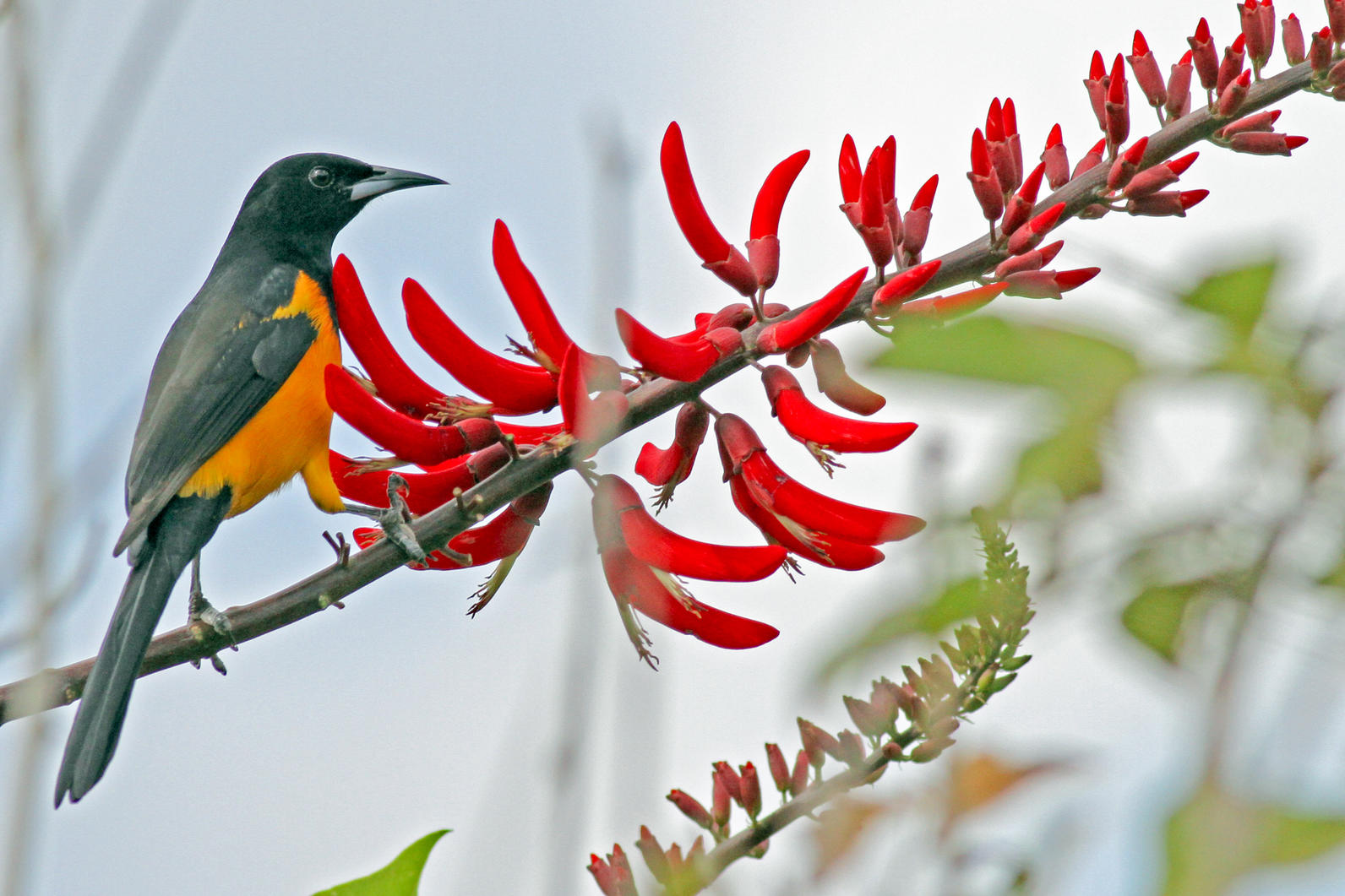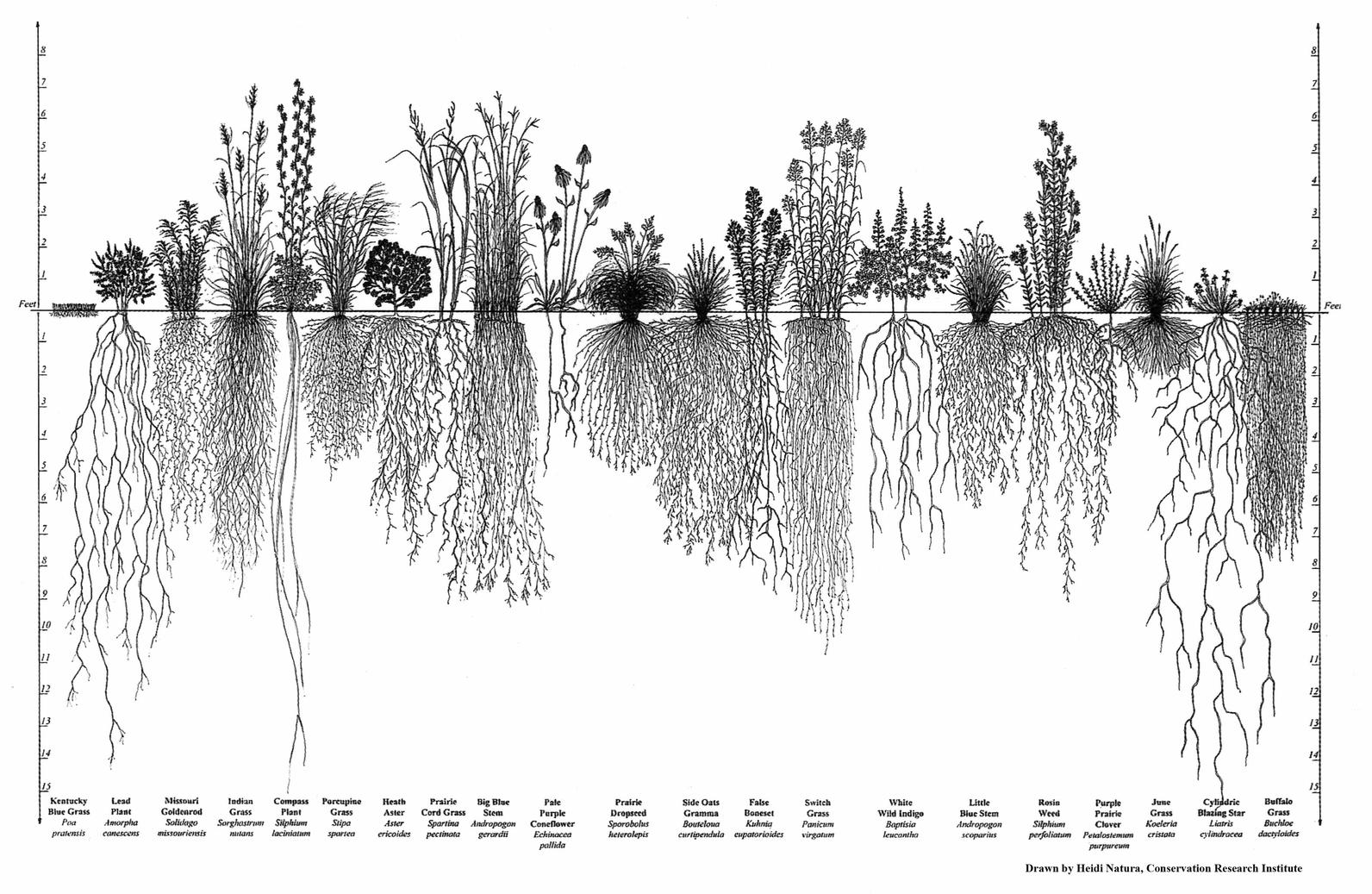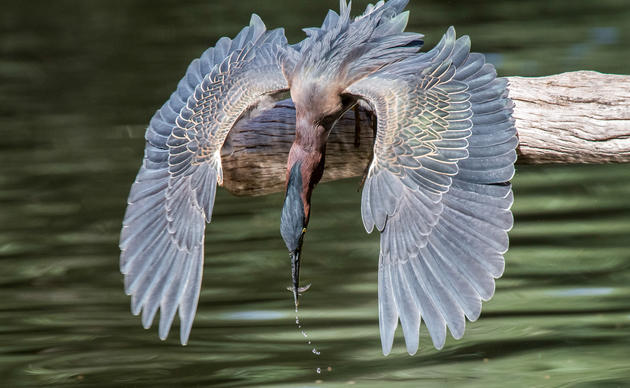Plants for Birds

Why landscape with native plants? Because plants indigenous to our region provide just the right smorgasbord of insects, flowers, and berries to boost local bird populations.
Native plants have more subtle benefits too. Their deep root systems — really deep compared to turf grass — restore healthy soils. And healthy soils readily absorb stormwater, filtering toxins before they reach our waterways.
Meanwhile, those deep native roots absorb chemicals like nitrogen and phosphorous that are good for plants, but shouldn't reach waterways in large quantities. Some native plants even degrade toxic chemicals before they run off into creeks and rivers.
So besides feeding our feathered friends, why landscape with native plants? Cleaner water and fewer floods.
"Rain gardens" are particularly effective. Shallow depressions planted with wetland natives, rain gardens capture runoff from roofs, lawns, and driveways, giving it time to percolate into the soil. Far better than going down a drain, which carries lawn and auto chemicals straight into our waterways.
So hey — how native is your backyard? In urban and suburban areas, more than 80 percent of plants are exotic species. Cities and suburbs now cover 10 to 15 percent of South Carolina, and growing. If homeowners, developers, and landscapers statewide decided to "go native," we could do wonders for water, while ensuring the survival of literally millions of birds.
So let’s get started . . . yesterday! Check out the beautiful plants that are native to your area. Investigate South Carolina’s native nurseries. And please let us know if there's anything we can do to help you make the switch!
PROJECT CONTACT: Matt Johnson, matthew.johnson@audubon.org

Sanctuaries
Plan a trip to one of Audubon South Carolina's two wildlife sanctuaries in the state.




